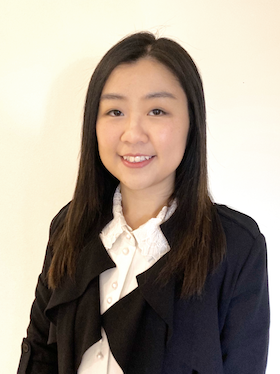BSc(Hons 1) University of Otago, PhD Australian National University
Optical engineer, Baraja Pty Ltd

I chose to study at Otago because it was one of the top 2 universities in New Zealand with a very strong research presence. Knowing that I would likely to do a postgraduate degree in the future at the time, I wanted to study in a university with strong science research facilities and support. I also really liked the idea of having a campus that is centralised geographically, forming a strong sense of community. As I was the dux of my high school, the dux scholarship was perhaps the deciding factor for me.
I have always liked science and maths from a young age. I had a very inspiring Physics teacher at high school which motivated me to learn more about the world in the sense of how things work and the mysteries of the universe, and in particular, quantum Physics, which was only taught through a Physics degree (in contrast to an engineering degree).
I enjoyed the flip-classroom style of teaching in my first year, which set a very strong foundation for my future learning ability. I enjoyed the tight-knitted environment in the Physics department, especially going into the senior years; I really felt the support and inclusiveness from classmates, tutors, and lecturers. I also enjoyed my 2-year residency in St Margaret's college, where I got to meet and learn from a lot of other academic focused students and future leaders from across the university.
I was involved in the international student mentoring programme as a mentor and was also a class rep for 3 years. I treasure these experiences a lot because not only did I meet more people from around the world and outside my normal class activities to increase my exposure to different cultures and thoughts, but they also set me up well for going into postgrad and future work life from a leadership perspective.
The physics department retreat was very memorable to me, where I really got to know the senior and postgraduate students, postdocs and faculty staff. I learnt a lot from those workshops and I still remember and make use of the advice I got from those workshops today.
After graduating with my BSc(Hons), I did a PhD at the Australia National University in Nanophotonics. I am now working for Baraja as an optical engineer in the Research and Development department. Baraja is a deep-tech start-up in Sydney which develops LIDAR for autonomous vehicles. My role there is to help design and build the next generation LIDAR through solving very hard problems.
My study at Otago has prepared me for my career especially from the perspective of active learning. My career has been very research focused where I need to get into the unknown of the unknowns a lot. The knowledge we get from an undergraduate degree could only take us so far, it is the ability to learn from reading and the critical thinking and problem-solving skills that has helped me tackle all the technical challenges I have come across. These skills were first introduced to me during my time at Otago. I would say that the lab courses and problem-solving based teaching style and exams have been pivotal in setting me up to become very successful in most of the things I have done since I graduated, from my PhD to my current R&D role at Baraja.
Otago prepared me well in the professional networking space. I had a lot of opportunities to travel and attend international conferences, as well as taking on different leadership roles in the optics and photonics field during my PhD at the ANU. The lab courses in second year and the honours year presentation and social training at Otago gave me a head start in presenting, writing peer-review journal articles and networking. Honing on those skills throughout my PhD, I have been awarded several presentation prizes and a writing award at the national level. This year, I have also been invited to be a member of two SPIE (International Society of Optics and Photonics) governing committees, namely the Early Career and Student Sub-Committee, and the Education and Outreach Committee where I continue to make impact to the optics and photonics community at an international level.
